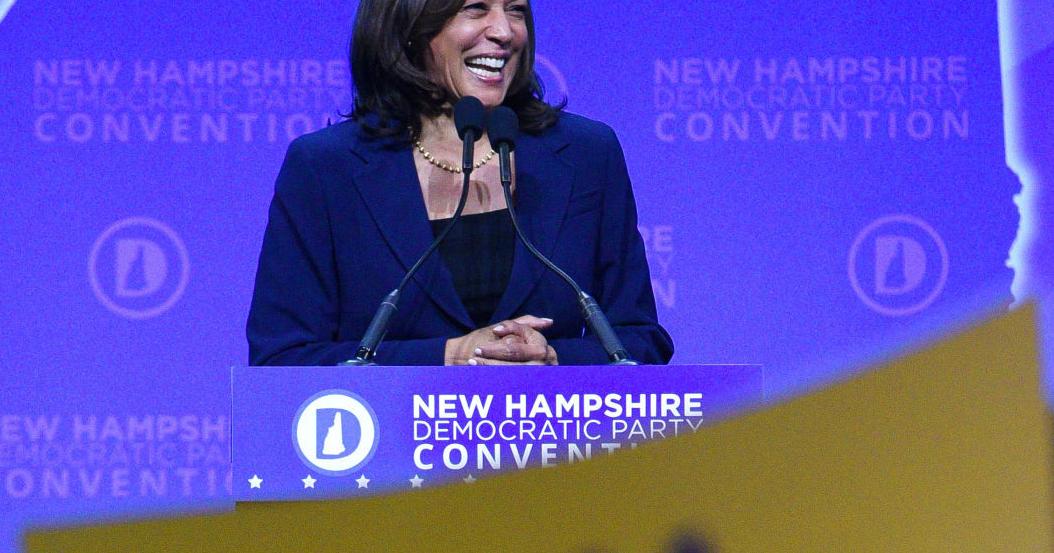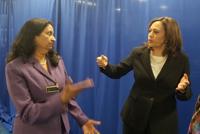While each lawsuit turns on its own set of facts, these cases together reflect long-running debate over the extent to which information about police misconduct must be made public. They could also clarify whether off-the-job misconduct or relatively minor incidents justify putting an officer’s name on the list.
Get N.H. Morning Report
A weekday newsletter delivering the N.H. news you need to know right to your inbox.
“These are really important cases concerning the standard that’s going to be applied with respect to when an officer is placed on the list,” said Gilles Bissonnette, legal director at the American Civil Liberties Union of New Hampshire.
The ACLU and the New Hampshire Department of Justice haven’t always seen eye to eye on how transparent the state should be about its Exculpatory Evidence Schedule, but Bissonnette said the DOJ deserves a lot of credit for its careful approach to interpreting the constitutional and statutory factors at play in determining which officers to place on the list.
“The attorney general’s office — this attorney general and prior attorneys general — clearly have taken seriously that obligation concerning placement and are doing a commendable job in litigating these cases,” he said.
Prosecutors have a constitutional obligation to disclose evidence that could help defendants poke holes in the criminal charges brought against them, including evidence from police personnel files. In 1995, because prosecutors had withheld records that reflected poorly on the character and credibility of a detective who testified against Carl Laurie at trial, the New Hampshire Supreme Court overturned Laurie’s first-degree murder conviction.
That led the DOJ to keep what was known as the “Laurie List,” a tool to help prosecutors identify officers with known credibility issues, whose personnel files could include exculpatory evidence that may need to be disclosed to defendants.
The list, which became known as the Exculpatory Evidence Schedule, was kept confidential for decades. But the New Hampshire Supreme Court ruled in 2020 that it isn’t exempt from disclosure under the state’s public records law. The legislature then enacted a statute in 2021 to designate the list as a public record and establish a process and timeline for officers to file lawsuits challenging their placement on the list.
Of the 266 names now listed, 50 remain redacted from public view as dozens of John Doe lawsuits move through the judicial system, according to the DOJ’s latest quarterly update.
Brandon F. Chase, an assistant attorney general, said all of this week’s oral arguments about the list revolve around what exactly that 2021 law means when it refers to “potentially exculpatory” evidence.
“A couple have a few other issues folded in — like staleness of conduct or due process requirements — but the primary issue is the meaning of ‘potentially exculpatory’ under the statute,” he said.
An attorney for the officers, Marc G. Beaudoin, said these cases are also about the state’s duty to protect the due process rights of law enforcement personnel.
“What you’re trying to balance out here is the criminal defendant’s right to any exculpatory information that’s in a personnel file versus a police officer’s property rights in their good name,” Beaudoin said.
Little information is available publicly about the lawsuits filed pseudonymously under seal in superior courts across the state. But the ACLU intervened last year in at least eight cases and successfully argued redacted filings must be made public when an appeal reaches the New Hampshire Supreme Court.
The redacted filings do not identify plaintiffs, but they do shed some light on the nature of the underlying disputes.
The first of the five cases up for oral arguments this week pertains to a Manchester police officer who resigned after his arrest in 2020 for drunken driving. The trial court agreed his off-duty misconduct was irrelevant to the Exculpatory Evidence Schedule, but the DOJ appealed, arguing it is statutorily obligated to include his name on the list.
The second case involves a Hanover police officer who was suspended for two weeks for forging a doctor’s signature on a medical clearance form. That incident was removed from his personnel file after he went five years without any further issues, but his name was added to the list in 2021 anyway. He sued, lost, and appealed.
The third case pertains to a Hanover police officer whose name was added to the list in 2021 based on decades-old allegations that he had been dishonest during a job application and interview process with another agency. He maintains he never lied or withheld information intentionally.
The fourth involves an off-duty Salem police officer who led colleagues on a high-speed chase as a prank. He was given a one-day suspension and later pleaded guilty to a speeding violation. (The redacted court records do not name him, but news reports and a DOJ press release indicate Sergeant Michael Verrocchi reached an agreement in 2021 stemming from the 2012 incident.)
The fifth case relates to a Nashua police officer who responded to a domestic disturbance in 2011 and served a temporary restraining order but did not immediately seek to enforce the terms of the order. The officer has been trying since 2018 to have his name removed from the list.
The four additional cases that will be submitted this month on written briefs, without oral argument, pertain to four New Hampshire State Police troopers. The first trooper falsely claimed he hadn’t received an email attachment; the second concealed a local police chief’s drunken driving more than 20 years ago; the third sent inappropriate text messages to arrestees and lied about it; and the fourth was accused of being untruthful about his status as a trustee for his aunt, according to the redacted court records.
These cases come after a joint lawsuit from three troopers went before the Supreme Court for oral arguments last June. In that case, the troopers padded their activity logs more than 20 years ago to artificially inflate the number of traffic stops they told their bosses they had performed.
Beaudoin argued the only rationale for keeping the names of those three now-retired troopers on the Exculpatory Evidence Schedule would be to publicly shame them, which isn’t the purpose of the list. He argued the state’s process for disputing placement on the list is too difficult.
“Right now, it is virtually impossible to be removed from the list due to the expansive nature of the word ‘potentially,’” he told the justices.
Emily C. Goering, an assistant attorney general, argued the plaintiffs were muddying the waters. The two key questions for courts to consider when reviewing an individual’s placement on the list, she said, are whether the underlying conduct was potentially exculpatory and whether the officer received due process.
“Despite the fact that the conduct might have occurred 20 years ago, it speaks to the petitioners’ general credibility, their recitation of events, their reliability,” she said. “That’s exactly the kind of information that can be beneficial to a criminal defendant or a criminal defense attorney.”
Goering said the DOJ doesn’t have discretion to pick and choose which officers with potentially exculpatory evidence in their personnel files will be included on the list. For the document to be an effective tool, she said, it needs to cast “the widest net.”
One of the five justices who heard those oral arguments, Gary E. Hicks, has since retired. His successor, Melissa B. Countway, will review written briefs and a recording of the oral arguments to participate in the court’s decision, according to an order Chief Justice Gordon J. MacDonald issued in January.
MacDonald, who served as attorney general before his 2021 appointment to the court, drafted a memo in 2018 that updated earlier guidance on the Exculpatory Evidence Schedule. His memo drew criticism from the ACLU after he and Governor Chris Sununu announced the changes as protecting the due process rights of police.
MacDonald didn’t recuse himself from the oral argument last June and didn’t recuse himself from the cases on Tuesday’s calendar, but he has recused himself from four cases on Thursday’s calendar.
A court spokesperson, Av Harris, said disqualification is determined on a case-by-case basis under the New Hampshire Code of Judicial Conduct, and MacDonald has recused himself from presiding over cases when the attorney general’s office was “substantially involved in the case on appeal” during his time in that office.
“For the other cases, Chief Justice MacDonald is not disqualified and is complying with his constitutional duty to hear the appeals,” Harris added.
Another justice, Anna Barbara Hantz Marconi, has recused herself from all the Exculpatory Evidence Schedule cases coming before the court this month based on a situation involving her husband, Geno Marconi, the long-serving director of the New Hampshire Port Authority, who was placed on leave in April for reasons that remain unclear.
Harris said last week that Hantz Marconi recused herself from cases involving the attorney general’s office based on her understanding that the office was advising the Pease Development Authority, which oversees the Port Authority, with respect to her husband’s work.
A spokesperson for the DOJ said the attorney general’s office advises the Division of Ports and Harbors, but will not comment on attorney-client communications, personnel actions, or judicial recusals.
Steven Porter can be reached at steven.porter@globe.com. Follow him @reporterporter.


































